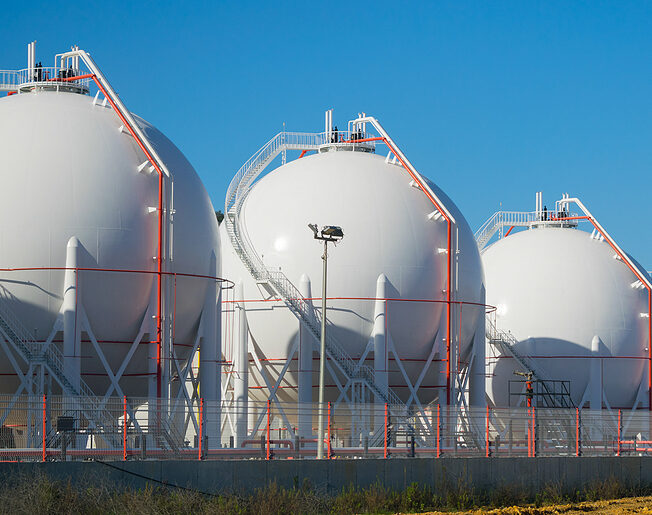Environmentalists declared victory earlier this year after President Joe Biden paused all liquid natural gas (LNG) export terminals, including a proposed $6.4 billion facility in the Delaware Valley.
But Pennsylvania energy advocates and politicians hope some kind of LNG export terminal might happen, if and when the federal government gets out of the way.
“Perhaps around January 2025,” quipped state Rep. Martina White (R-Philadelphia) at a recent virtual discussion on the Keystone State’s natural gas economy.
The Penn America Energy (PAE) LNG export terminal is proposed for just outside Chester along the Delaware River.
Developers say the 100-acre facility would be the third LNG terminal on the East Coast. It’s believed the project would create more than 31,000 jobs, adding more than $2.7 billion in labor income to the economy. That’s not counting the estimated $7.1 billion in total economic output and $714 billion in tax revenue over five years.
Proponents want to ship gas from the Marcellus Basin to Europe, further reducing its reliance on Russian natural gas. American exports to Europe jumped 199 percent after Russia’s invasion of Ukraine was met with sanctions. Much of the U.S. natural gas went to countries like Great Britain, Germany, France, and Poland.
Meanwhile, Russian natural gas exports tanked with energy giant Gazprom reporting a $7 billion loss last year.
“We literally defund the Kremlin when we turn the spigot on with American energy,” argued Pennsylvania Manufacturers’ Association President and CEO David Taylor.
The LNG export terminal faced extremely vocal opposition, including Chester Mayor Stefan Roots. Roots told DVJournal last year that he worried about the potential for public safety and pollution. He also said that Chester, which is in Chapter 11 bankruptcy, needed money immediately.
During last week’s discussion, White countered there was a lot of support for the LNG project within the Delaware Valley region. “That includes some of the people that would have benefited from some of the jobs and the local revenue streams,” she said.
With the LNG terminal stalled out, lawmakers and energy advocates said it’s important to keep Pennsylvania’s economy, which is second in the nation in natural gas production, on the upswing. A 2023 study revealed the industry contributed $41 billion to the state economy, along with 123,000 jobs.
That meant championing policy that proponents say will attract and retain businesses, including a specific timeline for state agencies to study and decide on permits. Should agencies fail to follow the timeline, the permits would automatically be approved. Other reforms require state agencies to explain in layman’s terms what kind of permits are needed by businesses and why, plus an easy permit application tracking system.
“To strengthen our state’s energy advantage, we need policies that acknowledge the value of Pennsylvania natural gas and help to advance energy exploration and infrastructure. Not restrict it.” said Stephanie Catarino Wissman, executive director of the American Petroleum Industry in Pennsylvania.
How that could happen may involve reminding Pennsylvania politicians that natural gas isn’t a partisan issue. State Rep. Josh Kail (R-Beaver) said “the world is a better place with Pennsylvania energy.”
But it also would mean opposing Democratic Gov. Josh Shapiro’s carbon cap-and-trade initiative. Shapiro has said the Pennsylvania Climate Emissions Reduction Act (PACER) plan would lower emissions, create more than 14,000 jobs, and save consumers $252 million in electricity rebates.
It’s a replacement for the Regional Greenhouse Gas Initiative (RGGI) that former Gov. Tom Wolf (D) attempted to push Pennsylvania into in 2022. That’s been blocked by the courts.
Shapiro’s PACER proposal currently sits in the legislature.
Kail scoffed at the plan. “It’s just going to bring in more Chinese-produced energy.”
He said people need to realize “Pennsylvania has the answer to many of the world’s problems” through its natural gas reserves.

